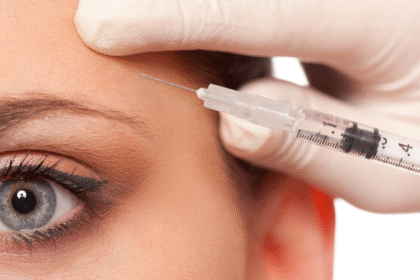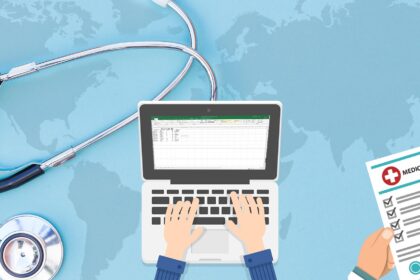Visiting a doctor and seeing them entirely focus on you, instead of typing on a computer, is what every patient wishes for. But a study reveals clinicians spend up to 50% of their time on documentation and administrative tasks. This burdensome paperwork eats into time that could be used to talk about prevention, which leads to earlier detection and healthier lives. This is where an AI medical scribe steps in to change the game.
They are helping doctors and healthcare professionals save time, reduce burnout, and let them focus more on preventing illness.
Let’s read this blog carefully to learn how AI scribes are quietly shaping the future of preventative medicine.
What is Preventative Medicine Care?
Preventative medicine is the process of keeping people healthy before they get sick. It includes the following:
- Regular health check-ups
- Screening for diseases (like diabetes, heart diseases and cancer)
- Vaccinations
- Lifestyle counseling (such as diet, exercise, stress and sleep)
The aim of prevention medicine is straightforward: identify risks early and avoid illnesses before they become severe.
Physicians are unable to provide sufficient time for preventive care in most health clinics.
They are often buried in documentation tasks, leaving little time for meaningful patient-provider conversations about early warning signs.
Why Preventative Medicine Care Needs AI Support
Preventative care like screening and vaccinations save lives and reduce costs, but it often overlooked. According to a 2023 study report, 7 out of 10 adults in the U.S., don’t receiver all recommended high-priority preventative services. The reasons behind this are some of the most common obstacles:
- Limited patient visit time
- Drowning into paperwork, EHR charting
- Errors or incomplete documentation
- High physician burnout rates reduce their focus on long-term patient care
AI medical scribe addesses all these obstacles and giving doctors their valuable time back, keeping healthcare documentation organized and helping patients stay on track with preventative care.
What is AI Medical Scribe?
AI-powered scribe is a smart healthcare assistant that captures patient-provider interaction and automatically creates detailed clinical notes in real time. Some AI scribe systems are “Ambient”, they listen in real time and create notes automatically. This system is integrated with existing EHR systems with ease so that important findings, patient’s vital signs, treatment plans, and follow-ups are accessible there in an organized manner.
Thus, rather than typing or dictating patient notes after every patient visit, the healthcare professionals can merely review and authorize the patient notes, saving the physicians valuable time.
Some of the leading AI medical scribes are- RevMaxx AI Scribe, Nuance DAX, Suki AI, Augmedix etc.
These systems utilize sophisticated machine learning and natural language processing (NLP) technology to interpret sophisticated medical vocabulary and convert conversations into systematic, accurate clinical information.
How AI Medical Scribes Are Changing Preventative Care
Here are some of the practical ways AI scribes support preventative medicine:
More Face-to-Face Patient Care Time:
When clinicians spend less time on typing, they have more time to talk with patients about diet, smoking, screening and vaccines.
Providers can spend their extra time asking preventative questions to their patients, like:
- Are you exercising regularly?
- When was your latest screening?
- Did you get your flu shot this year?
These discussions result in early detection of disease and long-term health gains. Research indicates that AI scribe-using clinics saved as much as 3 hours per day on paperwork, which physicians can leverage to talk to patients about prevention and lifestyle.
Better Accuracy in Health Care Data:
AI scribes capture every important detail, like symptoms, risk factors, family history and medications, which physicians can miss in hurried situations. Good clinical documentation assists physicians and EHR systems in the identification of potential health risks at earlier stages. Do not forget, a little bit matters a lot in preventative medicine care.
Automated Reminders and Follow-Ups
AI writers directly interface with EHR systems, so they can aid in triggering automated reminders for:
- Annual checkups
- Routine lab tests
- Cancer screenings
- Vaccination schedules
As a result, patients are less likely to miss preventive visits because their doctors’ EHR systems can now send timely reminders based on accurate, up-to-date clinical records.
Reduced Clinician Burnout:
In modern healthcare facilities, physician burnout is one of the major crises they have ever faced. According to AMA report, 63% of doctors and healthcare professionals report burnout issues largely due to paperwork and EHR tasks. By streamlining the clinical note-taking process, AI scribes can slash after-hours documentation drastically.
When physicians are less fatigued, they can concentrate more, interact more with patients, and ensure more long-term benefits to health. Clinician satisfaction leads to indirect benefits for preventive counseling and long-term patient relationships.
The Future of AI Scribe in Preventative Care
In the upcoming years, AI medical scribes will work hand-in-hand with predictive analytics tools. This will helping clinicians not just record information, but also spot health risks before symptoms appear.
We can experience the following:
- AI notices a pattern of elevated blood pressure readings over months
- It flags the patient for early intervention before hypertension sets in
- It spots lifestyle risks in conversations and suggests personalized prevention programs
This shift, from reactive care to proactive, predictive care- is where healthcare is headed. AI scribes are laying the foundation for it today.
The Final Thoughts
AI medical scribes are quietly shifting the clinic’s day-to-day in ways that matter for prevention. They give doctors time to look up from the screen and truly connect with their patients. They record information that results in early diagnosis and maintain preventive treatment on track.
Short, frequent discussions and reminders accumulate to large population health changes, and AI scribes are assisting with making them occur.
So, the real future of preventative medicine is here lies between the balance of human care and smart technology.


